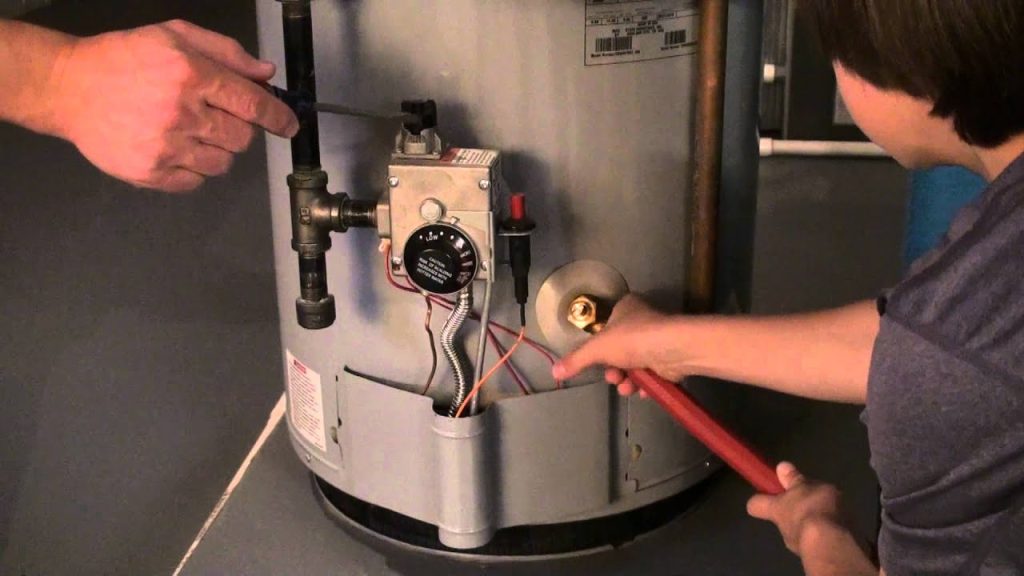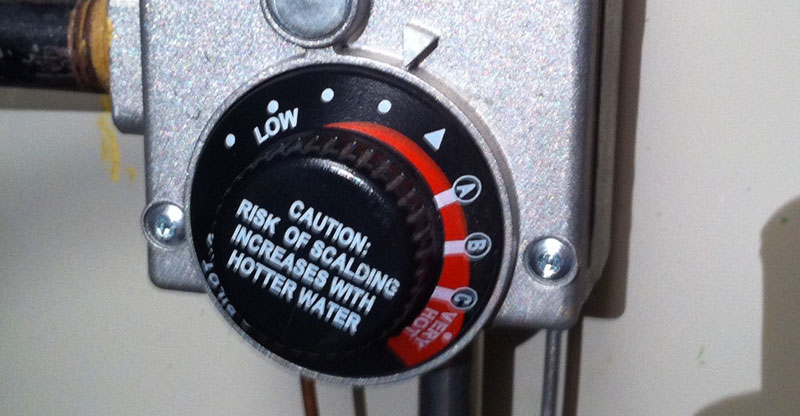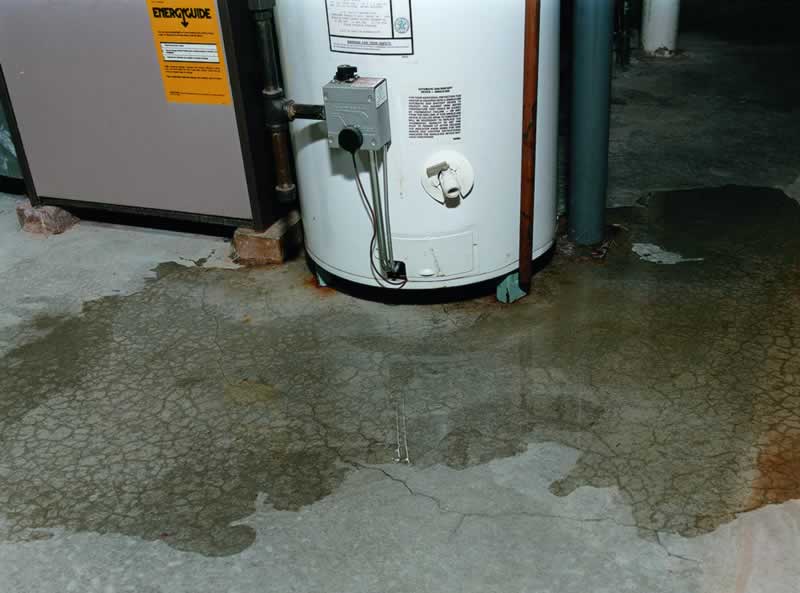Turning off your water heater can make sense because most households don’t use hot water at night. Does this, however, make sense to reduce your energy costs? Let’s take a look to see whether or not this is a sound money-saving plan.
Your water heater will become more stressful if it is frequently turned on and off. Your water heater’s lifespan can be affected as a result. You’ll also experience longer wait times for hot water when you need it if you turn off your water heater.
To save money, it is crucial to understand when to turn off your water heater.
When Is It Necessary To Turn Off A Water Heater?

A water heater’s job is to maintain the temperature of the water so that it is always hot when you need it. Because of this, the majority of people think that turning off their water heater while not in use is a good idea.
For instance, since few people use hot water at night, it could be a good idea to turn on your water heater then. You might be shocked to learn that shutting off your water heater at night can really end up costing you more money!
This is because the water in the tank will chill overnight, making it harder for your water heater to reheat the water when you switch it back on in the morning. Your energy cost will go up since your water heater will have to use more electricity to reheat the water.
Additionally, placing unneeded strain on your water heater may reduce its longevity. Due of this, it is typically not advised to turn off your water heater when it is not in use.
You can experience difficulties turning on an outdated water heater. This is due to the possibility that the older system, which may not be able to handle the increased demand for heat, could malfunction.
So, when should your water heater be turned off? Let’s examine several situations where it makes sense to turn off your water heater.
Prior To A Long Vacation
When you are leaving on a long trip, it makes sense to turn off your water heater. This is because there is no need to keep your water heater running during this period since you won’t be using hot water.
Additionally, it’s critical to safeguard your water heater from freezing temperatures if you will be gone for a long time. This is so that if water freezes, it won’t expand and won’t break the tank.
You can prevent this by switching your water heater to vacation mode or entirely turning it off and draining the tank before you go.
As Soon As The Primary Water Supply Is Cut Off
When the primary water supply to your home is shut off, you might also need to switch off your water heater. This may occur if a water main breaks nearby or if you are performing renovations that call for turning off the water.
In these situations, it’s crucial to turn off your water heater to prevent contamination of the water in the tank.
You can then restart your water heater and flush the system to get rid of any pollutants after turning the water back on.
Leak From Water Heater
It’s crucial to stop any leaks from your water heater right once and call a plumber. This is due to the considerable safety risk that a leaky water heater can pose.
When The Water Heater Is Off, Can You Still Use The Water?
You can still use water even if your water heater is off as long as your main water supply is turned on. The water won’t be heated, though, so it won’t be as cozy to use.
For instance, the water will be cold if you take a shower with your water heater off. Additionally, your dishwasher and washing machine won’t be able to heat the water, which could result in less-than-perfectly clean dishes and clothes.
Therefore, it is generally advisable to leave your water heater on unless there is a specific purpose to do so. You will always have hot water when you need it thanks to this.
What Is The Recommended Setting For A Water Heater?

It is typically advised to set your water heater to 120 degrees Fahrenheit for efficiency and safety reasons.
At this temperature, bacteria are effectively killed while posing no scorching risk. Although your water heater can be set to 140 degrees Fahrenheit, it is typically not advised to do so because it poses a safety risk.
To lessen the risk of scorching, you might want to set your water heater’s temperature lower if you have young children or elderly family members.
In general, it’s a good idea to check your water heater’s temperature sometimes to make sure it’s set at the proper level.
Water Heater: How To Turn It Off?
There are a few things you need to do when you need to turn off your water heater.
The water heater should first have its power turned off. This entails switching the water heater’s electrical control to the “off” position. This entails placing the knob to the “pilot” position on gas water heaters.
You can then switch off the water supply to the water heater once the electricity has been turned off. On the cold water line leading to the water heater in the majority of homes, there is a shutoff valve.
The flow of water entering the tank can be stopped by turning this valve to the “off” position. Remember that the tank may still contain water, so draining it may be necessary before totally cutting off the water supply.
Your water heater should be secure to leave off until you are ready to turn it back on once the power and water supplies have been cut off.
Consult a licensed plumber if you have any queries or worries about shutting off your water heater.
How Can I Tell If My Water Heater Is About To Fail?

There are a few symptoms to watch for if you are concerned that your water heater is about to fail.
Unusual Noises
If your water heater starts making unusual noises, that could be an indication of trouble. This noise could be knocking, popping, or cracking.
Sediment buildup in the tank may be the source of these noises. These noises may be brought on by the sediment heating up. Additionally, sediment buildup might cause the water heater to operate inefficiently and malfunction before its time.
It is a good idea to have your water heater checked by a professional if you notice odd noises emanating from it.
Leaks
If your water heater begins to leak, there’s another clue that it’s failing. A little leak could indicate more serious issues.
A damaged pressure relief valve or a fractured tank are just two examples of the many potential causes of a leaky water heater. Another indication of corrosion may be a leaking water heater.
It is crucial to have your water heater checked by a professional as soon as you notice any leaks.
Declining Supply Of Hot Water
Your water heater may be malfunctioning if you notice that your supply of hot water is reducing. Sediment accumulation in the tank may be the reason of a decrease in the hot water supply. The heating element may become insulated by sediment, decreasing its efficiency.
A malfunctioning heating element might also result in a reduction in the hot water supply. If the element is not working properly, it will not be able to heat the water in the tank adequately.
Water Of Poor Quality
Corrosion may be present if the water flowing from your water heater appears rusty or discolored. The tank could become weaker from corrosion and start to leak. It is crucial to have a professional inspect your water heater if you observe any corrosion symptoms.
Any of these symptoms should serve as a warning that it’s time to replace your water heater.
Even if you haven’t seen any of these symptoms, if your water heater is outdated it might be a good idea to replace it.
Conclusion
It’s crucial to properly maintain your water heater to prevent having to replace it more frequently than required. When going on vacation, for example, only turn it off when it is really necessary. Contact a specialist if you have any questions.






GIPHY App Key not set. Please check settings